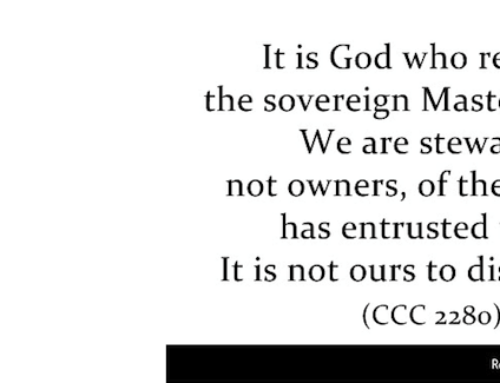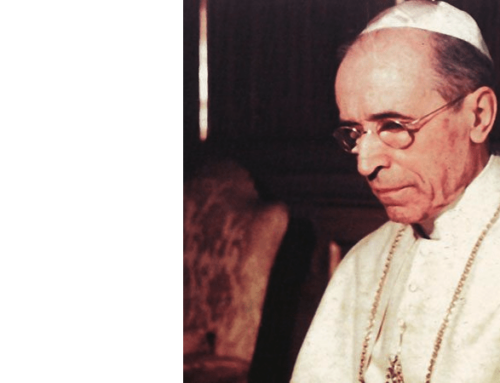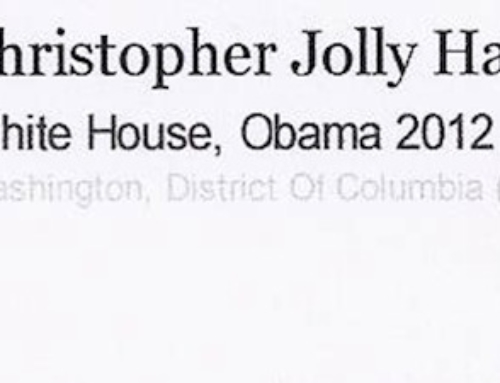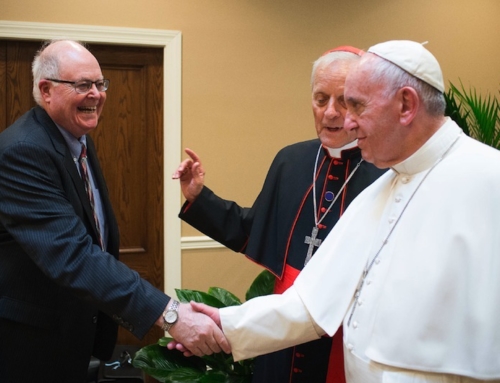by William Donohue
(Catalyst, June 2006)
American Theocracy: The Peril and Politics of Radical Religion,
Oil, and Borrowed Money in the 21stCentury
by Kevin Phillips
Viking, 480 pp., $26.95
Remember when presidential candidate George W. Bush was asked in 1999 to name his favorite philosopher, and he named Jesus? For the secularists—those men and women who are more frightened by the public expression of religion than by its absence—this was a pivotal moment in American history. For everyone else, Bush’s answer was seen as being very nice.
One of those who has never gotten over Bush’s response is Kevin Phillips. Now he has written a book, American Theocracy, that records his concerns. Though only a third of the book deals with the subject’s title (the rest touches on the federal debt and our dependence on oil), the section on politics and religion is getting most of the attention.
Phillips has come a long way since his first book, The Emerging Republican Majority, was published in 1969. Written at a time when Richard Nixon won a narrow victory over Hubert Humphrey, Phillips spotted a trend where others only saw anecdotes: He maintained that the key to an ascendant Republican majority lay in the abandonment of the Democratic party by Southern voters. He proved to be correct.
While it is true that the Republicans and Democrats have changed a great deal over the past several decades, it is also true that Kevin Phillips changed as well. Whatever affinity he once had for Republican politics has long since disappeared. Now he is happier writing an excerpt of his new book in the left-wing Nation magazine than in the conservative National Review.
Phillips is a worried soul these days. What worries him are people like you and me. Catholic League members, along with traditional Christians and Jews, are a problem. That’s because most of these people believe it is wrong to kill innocent human beings. Moreover, most of us refuse to sanction a wedding between a couple of guys. It’s the practical application of a religiously informed conscience that is deeply troubling to him: when people of faith bring their convictions to bear on public policy issues, they are promoting a theocracy. Or so he believes.
It’s too bad we’re not like the Europeans and Canadians, Phillips says. What he means by this is that it’s too bad we continue to go to church in relatively large numbers. For example, he correctly observes that the Europeans and Canadians are marked by “a secular and often agnostic Christianity.” And he is honest enough to say that “none of the western countries in which Reformation Protestantism bred its radical or anarchic sects nearly five hundred years earlier—England, Scotland, Germany, Switzerland, and the Netherlands—still [have] congregations of any great magnitude adhering to that theology.”
Phillips does more than just make an observation about the decline in church attendance in Europe and Canada—he finds it comforting. Indeed, he is not pleased that “even sympathetic commentators” in Europe talk about the “catastrophic decline” in church attendance. Why should the near absence of Christians in church be labeled “catastrophic,” he reasons, especially when those making such determinations are not unhappy with the results?
Unfortunately for the U.S., Phillips avers, we’re not following the lead of our more enlightened European brothers. As a matter of fact, we’re plagued with a Jesus-fearing president and a Republican party that has captured the heart and soul of the faithful. That’s what makes us a theocracy—we’re a nation ruled by religion. How did we get that way?
At one point in his book, Phillips says, “In the 1960s and 1970s, to be sure, secular liberals grossly misread American and world history by trying to push religion out of the public square, so to speak. In doing so, they gave faith-based conservatism a legitimate basis for countermobilization.” Fair enough. So what’s the problem? The very next sentence shows his political colors: “But in some ways the conservative countertrend itself has become a bigger danger since its acceleration in the aftermath of September 11.”
To know what Phillips is talking about, consider the issues he thinks has the imprint of the theocrat written all over them: abortion, euthanasia, the Equal Rights Amendment for women, gay marriage, etc. Phillips thinks that those who are opposed to these “rights” are dangerous. That’s his choice, but in doing so he also shows some sloppy thinking.
Take abortion. It’s not just those who go to church who are against abortion—many Americans of little or no faith oppose killing the unborn. For example, one of the most consistently pro-life voices over the last few decades is that of Nat Hentoff. Nat, who is a good friend of the Catholic League, is a Jewish, atheist, left-wing writer whose commitment to civil rights includes protection of the unborn. And what about all those young people today, many of whom are not exactly weekly attendees at church, who are convinced that sonograms don’t lie: They’ve seen the pictures and know that a fetus is a human being.
The intentional killing of Terry Schiavo did more to spur a long overdue national discussion on the merits of doctor-assisted suicide and euthanasia in general than all the books on the subject combined. To think that those who defended her right to live are mostly theocratic warriors is nonsense.
Phillips talks about “the excitement of women” in the 1970s who wanted an Equal Rights Amendment (ERA) and the “minimal” support the ERA got from traditional Christians and Jews. Evidently, he is wholly unaware of the fact that when the ERA was put on the ballot in a referendum in New York and New Jersey, women turned out in record numbers to overwhelmingly defeat it. That’s not my interpretation—it’s what was reported in the New York Times. These are hardly the kind of theocratic zealots that Phillips would have us believe: New York and New Jersey are not part of the Bible belt.
“To religious traditionalists,” Phillips writes, “homosexuality threatened the institutions of family and marriage.” He admits that in all eleven states where there was a referendum on this issue, it lost. He further notes that in seven of the eleven states, “conservative denominations [were] strong.” What he declines to say is that even in places like Oregon—where church attendance is notoriously low, and where agnostics and atheists are a sizable segment of the population—the voters turned against gay marriage.
Like all writers, Phillips chooses his words carefully. When speaking of the plight of Terry Schiavo, he uses terms like “a vegetative patient’s right to die.” And when he talks about crimes against fetuses, he always makes sure the reader gets his point about “crimes against fetuses.” Regarding the latter, Phillips has in mind things like the federal Unborn Victims of Violence Act, a bill that makes it a crime to intentionally assault a pregnant woman’s baby. In his mind, only theocrats want to protect the baby from being harmed or killed.
Like so many others who are terrified of the faithful bringing their religion to bear in the public square, Phillips frames the issue as those who favor science versus those who favor theology. Evidently he never heard of Pope John Paul II’s encyclical on faith and reason. Nor is he aware of the Catholic tradition that sees no inherent tension between the two. This is what happens when a writer draws mostly on the thinking that is prevalent in some Protestant circles, and concludes that all of Christianity adheres to such positions.
To get an idea of how the false dichotomy between faith and reason works, consider abortion. Phillips would have us believe that if practicing Christians are more pro-life than their more secular cohorts, then that makes abortion a religious issue. But it is not the Bible that teaches that human life begins at fertilization: it is what science teaches. It was scientists, not theologians, who discovered DNA, and it was they who determined that all the properties that make us human are present at conception (and not at some later stage). To acknowledge this scientific reality hardly makes one a theocrat.
Though Phillips does not come right out and say it, the inescapable conclusion of his book is that secularists need to seize control of society and the faithful need to have their wings clipped. The former, he is convinced, are the good guys who don’t want to impose their morality on anyone; the latter are the bad guys who want to shove their religion down everyone’s throat.
Here’s how it works. Phillips holds that those who want to overturn thousands of years of tradition by radically restructuring the institution of marriage so that two guys can marry really have no interest in imposing their morality on the rest of us, but those who resist are considered judgmental and intolerant. That the proponents of gay marriage want unelected judges to trump the authority of the people’s representatives is similarly seen as democratic, even at the cost of jettisoning the consent of the governed, a hallmark of democratic rule. It takes more than arrogance to reach this conclusion.
John Adams once wrote that the Constitution “was made only for a moral and religious people.” That’s because self-government depends on a self-governing people, and it is difficult to reach this objective absent the cultivation of a morally sound and religiously observant public. This doesn’t mean that a free society is enhanced by allowing religious zealots to take command of the reins of government, but neither does it mean that the faithful are a menace to liberty whose place in society needs to be curtailed.
Kevin Phillips has no real reason to worry—most of the people he thinks are theocrats are no more inclined to live under theocratic rule than he is. It is we who need to worry about the solutions people like him have for problems they sincerely believe exist.






